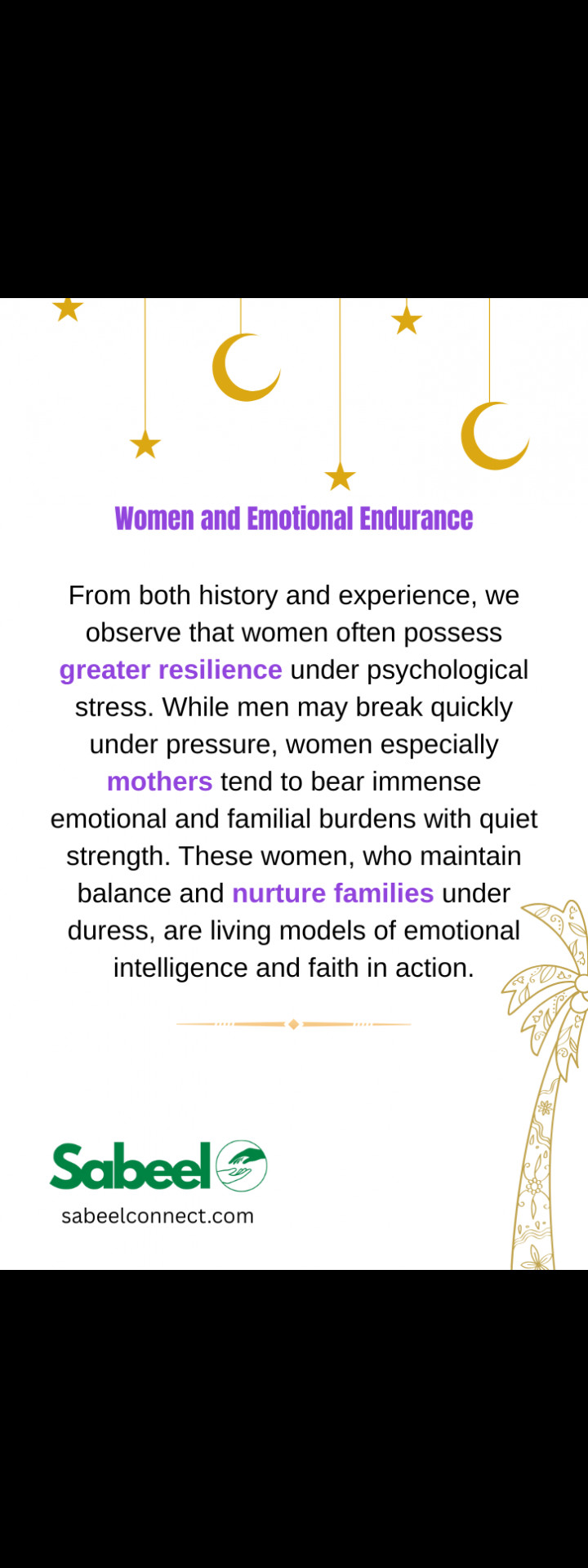Understanding Human Trials and “Unpleasantness”
The central idea of this talk can be summarized as:
How can a human being maintain psychological balance, inner peace, and purpose amid the unpleasant circumstances of life—such as war, natural disasters, or personal crises?
Unpleasantness is not an exception in human life; it is a part of creation itself. God created humanity for the earth, not merely for paradise. Before sending Adam (peace be upon him) to Earth, Allah had already declared:
“Indeed, I am placing a vicegerent on Earth.” (Qur’an 2:30)
Thus, human life on Earth was always meant to include both comfort and discomfort, ease and difficulty, joy and sorrow. The human journey is not a smooth road of pleasures—it is a dynamic balance of contrasts. These opposing conditions are what make human life meaningful and what give us the opportunity to exercise free will.
The Dignity of Human Choice
One of the greatest dignities God gave humanity is the power of choice. Angels, animals, and natural forces act according to divine command alone. Humans, however, have been given the ability to choose. For choice to be meaningful, there must always be at least two paths—one right, one wrong; one easy, one hard.
If life offered only one option, there would be no need for thought, will, or morality. Thus, conflict and contrast are not punishments—they are honors, opportunities for us to express our freedom, reason, and moral character.
The Media and the Death of Independent Thought
In our modern age, however, we have surrendered much of our thinking to media—and increasingly to artificial intelligence. Technology is a remarkable gift, but it must not paralyze our intellects.
When we let others think for us—deciding for us what is “good” or “bad,” “pleasant” or “unpleasant”—we lose the very faculty that makes us human.
Even children should be allowed to experience and discern things for themselves. When parents constantly dictate, “You don’t like this food” or “You’ll enjoy that,” the child loses the ability to decide and feel independently. Similarly, society today tells us what to fear, what to desire, and what to avoid. This is indoctrination, not education.
Education must awaken and develop human reason—not replace it.
Life Between Ease and Hardship
The Qur’an teaches that human life is a balanced system—a world containing both ease and hardship, light and darkness. Sometimes we face natural disasters like earthquakes, floods, or storms. Sometimes we face human-made crises—wars, conflicts, political oppression, and personal struggles.
But hardship is not confined to nations; every household has its own internal battles:
between siblings, spouses, generations, or even within one’s own mind.
The question, then, is not whether hardship will come—it always will—but how we respond to it. Are we preparing ourselves, our children, and our students for all seasons of life—for both spring and autumn, ease and adversity?
Prophets and the Education of Endurance
Every Prophet of God experienced deep distress, grief, and crisis.
-
Moses (Musa) faced oppression from Pharaoh, exile, and endless rebellion from his own people.
-
Noah (Nuh) struggled with rejection and ridicule for centuries.
-
Abraham (Ibrahim) faced fire, exile, and the sacrifice of his son.
-
And the Prophet Muhammad (peace be upon him) himself said:
“No prophet was ever harmed as much as I was.”
Their lives were not stories of constant comfort—they were schools of resilience.
Even the Prophet Muhammad (peace be upon him), when deeply grieved by the insults of Quraysh, once stayed in seclusion, wrapped in his cloak out of sorrow. Then the divine command came:
“O you who are wrapped up (in your cloak), arise and warn!” (Qur’an 74:1–2)
This verse did not merely command him to stand physically—it called him to rise above grief, to transform pain into mission, and to turn inner turmoil into prophetic strength.
Faith as Psychological Power
The Qur’an repeatedly reminds the Prophet:
“Do not grieve, and do not be saddened.”
Faith (iman) is not an abstract word; it is a psychological force that gives stability when everything collapses. Yet, we often use the term “faith” vaguely, without defining how it functions as emotional strength. Faith, properly understood, is not denial of pain—it is seeing beauty in the divine order, even when life looks broken.
Zainab (sa): The Model of Spiritual Resilience
No example illustrates this better than Lady Zainab (peace be upon her)—the sister of Imam Husayn (as)—at Karbala. She witnessed unimaginable horrors: her brothers, sons, and companions martyred before her eyes, the sacred tents burned, the family taken captive.
When she was brought in chains before Ibn Ziyad, he mocked her:
“How do you see what Allah has done to your brother and family?”
Her response was astonishing:
“I saw nothing but beauty.”
(Wajadtuhu Jameela)
This is the psychology of faith—the ability to see divine wisdom in the midst of chaos, to stand firm when the world has fallen apart. Such spiritual strength transforms suffering into dignity.
Women and Emotional Endurance
From both history and experience, we observe that women often possess greater resilience under psychological stress. While men may break quickly under pressure, women—especially mothers—tend to bear immense emotional and familial burdens with quiet strength. These women, who maintain balance and nurture families under duress, are living models of emotional intelligence and faith in action.
From Religion to Social Psychology
The Qur’an and the teachings of the Prophets offer not only spiritual guidance but also social psychology—insight into how societies handle stress and maintain moral balance. Modern psychology, too, now recognizes “social stress” as a collective phenomenon affecting communities, not just individuals.
Institutions, especially universities and religious organizations, must therefore integrate faith, psychology, and education to build societies capable of managing crises—not merely reacting to them. Technology alone cannot create moral or balanced societies. That task belongs to educators, philosophers, and social scientists.
Conclusion: Building a Balanced Society
Disasters—whether natural, emotional, or social—are not new. They are part of the human story. The challenge is not to eliminate them, but to prepare the mind and spirit to navigate them with dignity, wisdom, and faith.
Faith gives meaning.
Knowledge gives method.
Together, they create resilience—the ability to stand tall in storms, to find beauty in pain, and to live purposefully despite adversity.
As Superior University continues to nurture such discussions, may it inspire a generation of balanced thinkers and compassionate leaders who can guide Pakistan—and humanity—toward a healthier, wiser, and more resilient future.
Insha’Allah.
Syed Jawad Naqvi






Leave a Reply